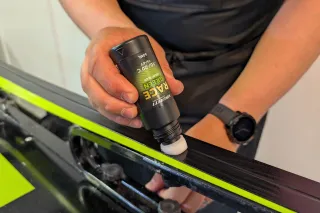Plastic is an essential part of modern life, but the way we use it causes major environmental damage. To fix this, we need circular economy and chemical recycling of plastics.
Executive Vice President Jussi Manninen, Professor of Practise Holger Pöhler and Senior Scientist Anna Tenhunen from VTT and Professor Jukka Seppälä from Aalto University discussed these possibilities at VTT’s Sip of Science.
Currently, we produce globally around 400 million tons of plastics every year and this is expected to increase to 1000 million tons by 2050. Only 10% of plastics is recycled today. EU has set new, demanding targets for recycling. To reach them, we can no longer rely on mechanical recycling alone – we also need chemical recycling.
From linear to circular economy of plastics
In today’s linear economics, plastics are optimised for the use. They are often complex multi-material solutions that provide high performance but are extremely difficult to recycle, says Anna Tenhunen.
Instead of high performance, we should prioritize the life cycle of plastics. Better collection, separation and reuse of plastic products helps to stop pollution, while renewable and recycled feedstock, carbon neutralization, and use of clean energy reduce greenhouse emissions, explains Holger Pöhler. We also need to incorporate ecodesign of plastic products and materials.
Novel technologies for recycling
Until now, plastic recycling has relied on mechanical technologies, which are not very suitable for complex materials. Mechanical recycling also causes degradation and may lead to downcycling and loss of value of the material.
Chemical recycling enables large-scale circular economy of plastics. “This technology breaks large polymeric plastic molecules to small monomers that can be used as building blocks in the chemical industry”, Jukka Seppälä explains. Thermochemical recycling by pyrolysis or gasification is the most versatile way to do this.
In the verge of a new industry
There is a societal need and demand for chemically recycled plastics. The technology is available, although it must be tuned and made more efficient. Certain regulatory issues need to be resolved and we need critical volumes to make chemical recycling economically feasible.
Some major players in the chemical industry already see this as an opportunity for sustainable business and are developing their own technologies. Big companies in the plastics value chain and Finnish waste companies are seeing the benefits and have expressed their interest. VTT is also currently piloting these technologies.
Finland is in the frontline of this development, with important industrial players and lots of knowledge in this field. VTT and the Finnish universities are creating science-based solutions for chemical recycling of plastics. By spreading a realistic message about these possibilities, we are one step closer to making this happen.
VTT Sip of Science on chemical plastics recycling
Learn more about the chemical recycling of plastics, and see the whole VTT Sip of Science discussion between Jussi Manninen, Holger Pöhler, Anna Tenhunen and Jukka Seppälä from Aalto University discuss the benefits and concerns around plastics, and how we can fix the issues of recycling.






